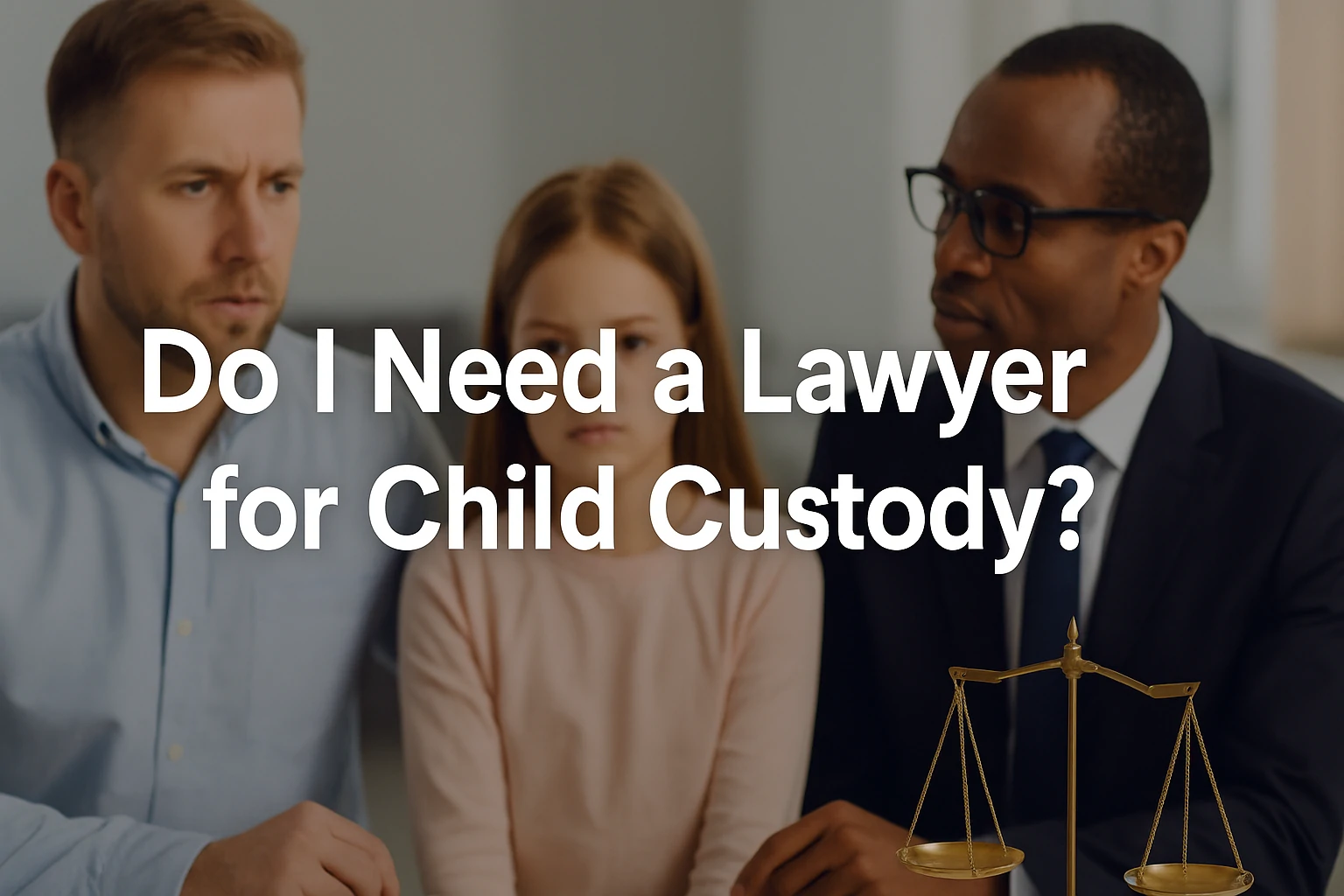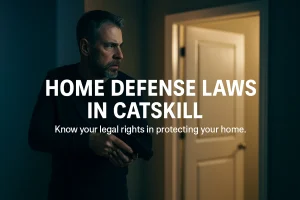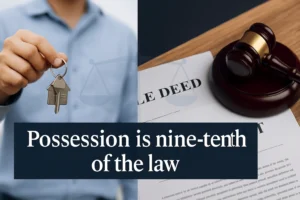Custody fights often cause the most stress during a divorce. Parents feel afraid of losing time with their child. They want to keep a strong bond and protect their child’s safety. They also want to give their child a stable and happy life. Simple talks can break down fast. Disagreements turn into court cases. Emotions run high. These moments push both parents to their limit. The pressure feels heavy, and the outcome shapes the child’s future.
In many cases, parents ask a common question—do I need a lawyer? Some try to handle everything without help. Others feel lost and afraid of doing the wrong thing. Family law is not always easy. Courts follow strict rules. Every state has its own legal process. One small mistake can cause serious problems later.
A lawyer knows how the system works. They speak on your behalf and help you avoid costly errors. They also help you understand what the court needs. In some cases, you may not need a lawyer. But in others, legal help may be the smartest step you take. Knowing when to hire one can make a big difference.
This article will walk you through what to consider. You will learn how child custody works, when a lawyer is helpful, and what you can expect from the legal process.
What Child Custody Really Means
Child custody has two main parts. One part is where the child lives. The other part is who makes decisions about the child’s life. Some parents take full control. Others share these duties. Each family is different. Courts study the facts before making a decision.
Legal custody gives a parent the power to choose the child’s school, doctor, and daily care. Physical custody means the child’s main home. Some parents split both. In other cases, one parent takes the lead.
Judges look at what helps the child most. They care about safety, love, and daily routines. The court puts the child first in every case. The goal is always to choose what gives the child the best life.
Can You Handle Custody Without a Lawyer?
Yes, some parents can. If both sides agree on everything, a lawyer may not be needed. Courts allow parents to make their own plans. If the plan seems fair, the judge may approve it.
Some families use court forms or local help centers. These resources give step-by-step instructions. Some states offer free legal help or self-help centers in family court buildings. These services often help with forms but do not give legal advice.
Some custody cases look simple at first. But small mistakes can cause big problems later. A lawyer makes sure each step follows the law. They help you stay on the right path and avoid trouble. If both parents agree and things stay calm, full legal help may not be needed. Still, speaking with a lawyer before making a final deal is a smart move.
When a Lawyer Becomes Necessary
Not every case stays peaceful. Some turn into major disputes. When trust breaks down, it is hard to move forward. In those moments, you need protection.
If the other parent has already hired a lawyer, you may fall behind without one. A lawyer can speak for you in court and keep you from being taken advantage of. If the other side starts making demands, you will need help fast.
Sometimes, serious issues come up. A parent may want to move to another state with the child. One parent may raise safety concerns. There may be past abuse, drug use, or neglect. These issues can quickly take the case out of your control.
In high-conflict situations, a lawyer does more than handle papers. They work to protect your rights. They gather proof, present your case, and make sure your voice gets heard. In tough cases, that can change everything.
What a Custody Lawyer Really Does
A family lawyer does more than go to court. They give advice from the start. They explain your rights. They show you what to expect. They help you make smart choices at each step.
When papers need to be filed, they take care of it. When forms ask for details, they help you answer clearly. They help gather school records, medical notes, and other key information.
In court, a lawyer knows how to speak to the judge. They know what questions to ask. They also know how to handle false claims. If the other parent tries to damage your case, your lawyer responds fast and strong.
A good lawyer stays steady under pressure. They keep calm when emotions run high. They walk you through each step with care. They focus on your case day by day, without rushing. Their support can make a hard process feel easier.
What to Expect in a Custody Case
The process often begins when one parent files a custody petition. The other parent gets a notice to respond. Then the court reviews the case and may set a hearing.
Courts often ask parents to try to reach an agreement. Some states require mediation. This is where both sides meet to try to create a parenting plan. If you agree, the court may approve it without a trial.
If parents cannot agree, the case goes to court. The judge may order more steps before making a decision. These steps can include home visits, interviews, or family reports. The court wants to learn what is safe and stable for the child. Every choice aims to protect the child’s well-being.
In court, each parent tells their side. The judge listens and reviews the facts. The decision is final unless someone files an appeal or asks for a change later.
Can You Hire a Lawyer for Just One Step?
Yes, Some parents cannot afford full legal help. Others only need a lawyer for one part of the case. In many states, lawyers offer limited services.
You may choose to hire a lawyer for a small part of your case. They can check your plan or help you get ready for court. Some people ask a lawyer to explain court steps or complete forms. This costs less than full legal help. It still gives support where you need it most.
Legal Fees and What to Expect
Costs vary. Some lawyers charge a set price for each task. Others charge by the hour. The more complex your case, the more it may cost. Trials take more time and money than agreements.
Always ask for a clear price estimate. A written fee agreement helps avoid surprise bills. Ask about payment plans if money is tight.
Some legal aid centers give free help to low-income parents. These programs may be limited, so apply early. Check with your state court or local bar association to find options in your area.
How to Find the Right Lawyer
Start with research. Look for lawyers who focus on family law. Ask friends or family for names. Read reviews online. Set up a first meeting before you decide.
A good lawyer listens to your goals. They speak in plain English. They treat you with respect. They also tell you the truth, even if it is hard to hear.
You must feel safe with your lawyer. Trust is key in custody cases. If something feels off, keep looking. You want someone who will fight for your rights and guide you with care.
Can the Court Change a Custody Order?
Yes, Life changes, and court orders are not always final. If something big changes, you can ask the court to review the case again.
A parent may move far away. A child’s needs may shift. A parent may stop following the court order. When these things happen, you can file a request to modify custody.
The court looks at the request and decides if the change is good for the child. A lawyer can help you write the request and show the reason behind it. Clear facts and strong reasons can make a big difference in the outcome.
Final Thoughts
Child custody is not just about papers or courtrooms. It is about your child’s life. You want what is best for them. You also want to keep a strong connection, no matter what the future holds.
In some cases, you may solve things on your own. In others, legal help may be your best choice. A good lawyer gives more than legal advice, they give peace of mind. They help protect your role as a parent.
Think carefully about your case. Ask the right questions. Get the support you need. Your child’s future is worth every step.
Disclaimer
This article provides general information only. It does not offer legal advice. Please speak with a licensed attorney for help with your case.




